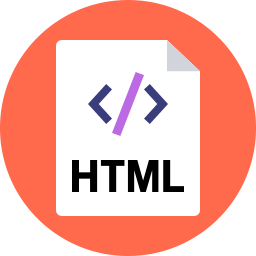HTML to XML Converter
HTML to XML Converter
In the digital age, where data rules supreme, ensuring the seamless transfer and management of information is paramount. HTML (Hypertext Markup Language) and XML (eXtensible Markup Language) are two foundational languages used for structuring and presenting data on the web. However, there are instances where converting HTML to XML becomes necessary, whether it's for enhancing data interoperability, facilitating data integration, or simply for better data management.
Understanding HTML to XML Conversion
HTML and XML, though both markup languages serve different purposes. HTML focuses on the presentation of content within web pages, whereas XML is designed to structure, store, and transport data. Converting HTML to XML involves transforming the markup from one format to another while preserving the content's structure and meaning.
Methods of Converting HTML to XML
There are several methods to convert HTML to XML, ranging from manual conversion techniques to utilizing specialized online converters or writing custom scripts tailored to specific conversion requirements.
Benefits of Converting HTML to XML
The conversion of HTML to XML offers various benefits, including improved data structure, enhanced compatibility across different platforms, and more efficient data management capabilities.
Choosing the Right HTML to XML Converter
When selecting an HTML to XML converter, it's essential to consider factors such as conversion accuracy, ease of use, and the ability to handle complex HTML structures. Several online converters are available, each with its unique features and functionalities.
Step-by-Step Guide: How to Convert HTML to XML Online
To convert HTML to XML online, follow these simple steps:
- Choose a reliable online conversion tool.
- Upload your HTML file to the converter.
- Initiate the conversion process.
- Download the generated XML file.
Tips for Successful HTML to XML Conversion
To ensure a successful conversion process, it's essential to validate the XML output, handle any errors that may arise during conversion, and optimize the XML structure to suit your specific needs.
Common Challenges and Solutions
Challenges such as encoding issues, complex HTML structures, and large file conversions are common when converting HTML to XML. But if you use the right methods and tools, you can overcome these challenges.
Use Cases of HTML to XML Conversion
HTML to XML conversion finds applications in various fields, including web scraping, data integration, and improving interoperability between different systems and platforms.
Best Practices for HTML to XML Conversion
Adhering to best practices such as maintaining consistency in markup, documenting transformation processes, and thoroughly testing XML output can ensure a smooth and efficient conversion experience.
Future Trends in HTML to XML Conversion
The future of HTML to XML conversion holds promise, with advancements in automation through AI, integration with emerging technologies such as IoT and blockchain, and ongoing efforts towards standardization.
Conclusion
In conclusion, converting HTML to XML is a crucial step towards streamlining data structure and enhancing data management capabilities. By choosing the right conversion method and adhering to best practices, businesses can unlock the full potential of their data assets, paving the way for improved efficiency and innovation in the digital landscape.

